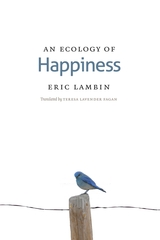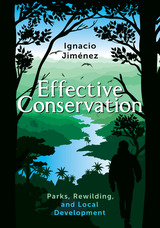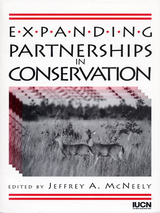3 start with E start with E

In this clever and wide-ranging work, Lambin draws on new scientific evidence in the fields of geography, political ecology, environmental psychology, urban studies, and disease ecology, among others, to answer such questions as: To what extent do we need nature for our well-being? How does environmental degradation affect our happiness? What can be done to protect the environment and increase our well-being at the same time? Drawing on case studies from Asia, Africa, Europe, and North America, Lambin makes a persuasive case for the strong link between healthy ecosystems and happy humans.
Unique in its scope and evenhanded synthesis of research from many fields, An Ecology of Happiness offers a compelling human-centered argument that is impossible to overlook when we marvel at murmurations of starlings or seek out the most brilliant fall foliage: nature makes our steps a little lighter and our eyes a little brighter. What better reason to protect an ecosystem or save a species than for our own pleasure?

Effective Conservation is based on Jiménez’s experience managing conservation projects on three continents over thirty years. Jiménez offers a pragmatic approach to conservation that puts the focus on working with people—neighbors, governments, politicians, businesses, media—to ensure they have a long-term stake in protecting and restoring parks and wildlife. Jiménez guides readers through the practical considerations of designing, analyzing, and managing effective conservation programs. Chapters explore intelligence gathering, communication, planning, conflict management, and evaluation techniques, and include numerous text boxes showcasing examples of successful conservation projects from all continents. A companion website (islandpress.org/effective-conservation) includes additional case studies, expanded texts, and links to additional resources.
This highly readable manual, newly translated into English after successful Spanish and Portuguese editions, provides a groundbreaking and time-proven formula for successful conservation projects around the world that bring together parks, people, and nature.

Protected areas around the globe national parks, wildlife reserves, biosphere reserves will prosper only if they are supported by the public, the private sector, and the full range of government agencies. Yet such support is unlikely unless society appreciates the importance of protected areas to its own interest, and the protected areas are well-managed and contribute to the national welfare in a cost-effective way.
A crucial foundation for success is full cooperation between individuals and institutions. Based on papers presented at the IVth World Congress on National Parks and Protected Areas, Expanding Partnerships in Conservation explores how new and stronger partnerships can be formed between managers of protected areas and other sectors of society. It describes a range of activities currently underway in many parts of the world that are intended to improve conservation efforts at the international, national, and local levels.
READERS
Browse our collection.
PUBLISHERS
See BiblioVault's publisher services.
STUDENT SERVICES
Files for college accessibility offices.
UChicago Accessibility Resources
home | accessibility | search | about | contact us
BiblioVault ® 2001 - 2024
The University of Chicago Press









